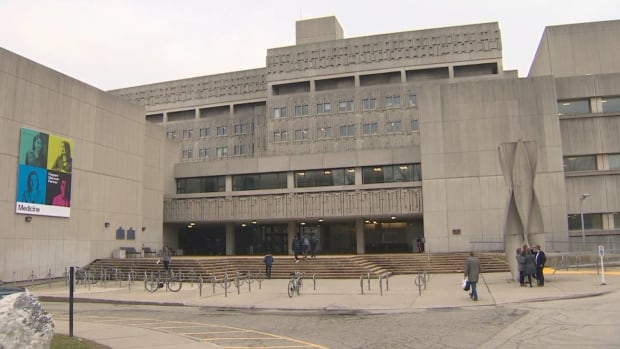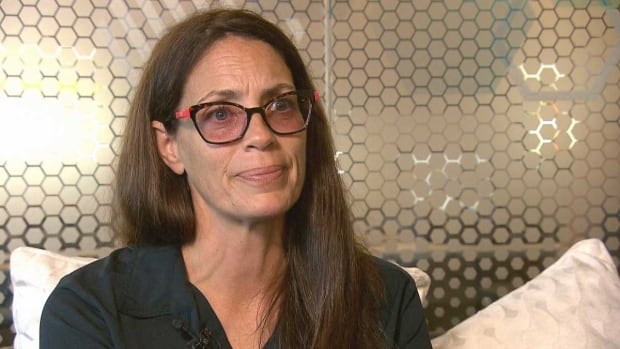An organization that represents doctors in Ontario is expressing concern about what it says is a declining number of medical school students choosing family medicine.
Dr. Andrew Park, president of the Ontario Medical Association (OMA), said at a briefing on Tuesday that solutions are needed to prevent the province’s family doctor shortage from getting worse. He said 2.3 million people in Ontario are without a family doctor and that number is expected nearly to double in the next two years. The OMA represents 43,000 doctors, medical students and retired doctors.
Park said medical school graduates decide each year the type of medicine in which they want to specialize and the Canadian Resident Matching Service (CaRMS), a national, independent organization, matches graduates with residency placements at medical schools in two rounds annually.
Following the first round of this year’s match, there were 108 unfilled family medicine spots out of a total of 560 in Ontario. The 108 is an increase from 100 unclaimed spots last year, 61 in 2022 and 52 in 2021 and 30 in 2020. Park said the second round of matching is this Thursday and Ontario doctors will be watching the results very closely.
“Medical students must see family medicine as a desirable and rewarding career choice, or they will choose another specialty,” Park said. “Students are aware of the funding issues and the administrative work associated with practicing comprehensive family medicine and don’t want to enter practice in a broken system.”
Park said the OMA must address the problems and promote family medicine as an “impactful” career choice.
“It is clear. We need to act now to ensure there is a future for family medicine in Ontario,” he added. “We have to ensure that funding for doctors keeps pace with the rising cost of inflation and is reflective of their ability to operate their practice.”
‘Crushing’ administrative load a problem: OMA president
Park said another reason that medical school students may not be choosing family medicine is because they are hearing about the “crushing” administrative burden that comes with it.
“No one goes to medical school to fill out forms,” he said. “Doctors want to care for their patients, but the administrative work that has crept into medicine makes it feel less about caring for people and more about paperwork. This has to change.”

Family doctors are the foundation of the health care system, said Park. They provide the “vital link” to specialist care, help patients to stay healthy, prevent disease by identifying risk factors, manage chronic disease and get their patients access to diagnostic services, he added.
For patients, Park said fewer family medicine doctors will mean less access to care, which could leave people with unattended health care concerns.
‘People are thinking about their lifestyles,’ student says
Jeeventh Kaur, a third-year medical school student at the University of Toronto and president of the Ontario Medical Students Association, the student voice to the OMA, said students are aware of the problems in family medicine.
“All the time now, we are hearing about the amount of burnout that’s happening in medicine in general but particularly in family medicine because of the amount of paperwork and forms,” Kaur said.
“When we go and we work with family physicians in their clinics, we can also see how much time they’re putting into unpaid, unappreciated work that they still have to do.”
Kaur said students think they should be compensated for the amount of time they have spent getting into medicine.
“There is a bit more of a trend now where people are thinking about their lifestyles and the lives that they want,” Kaur added.

One medical school leader said the issue is an urgent one for the province.
Dr. Cathy Risdon, a family doctor and chair of the department of family medicine at McMaster University, said fewer family doctors also means fewer teachers. Medical students who want to be family doctors train in family doctors’ offices, she said.
“We have a medical workforce that is also a teaching workforce and they are absolutely critical to our future,” Risdon said.
“If you think of a family doc who takes students over their career, they’ve trained hundreds of students to be future family physicians and those students will see thousands of patients over their lives.”
Ministry aims to ease doctors’ administrative burden
In a statement on Tuesday, the Ontario Ministry of Health said it is “making historic investments to launch the largest medical school expansion in nearly two decades, adding new medical school seats at every medical school and building two new medical schools, including at York University. This will be the first medical school in Canada focused on primary care.”
The ministry said it is also working to tackle the administrative burden on physicians through such measures as a burnout task force that aims to improve OMA endorsed priority government forms, and a paperwork reduction effort that includes a process called eReferral to tackle referrals, consults, prescriptions and central intake.
The ministry also aims to replace fax machines with a “digital communication alternative” at Ontario health care providers, it said
“Our work has significantly accelerated work to simplify forms and we look forward to sharing the improvements that have been made in the near future,” the ministry said.







